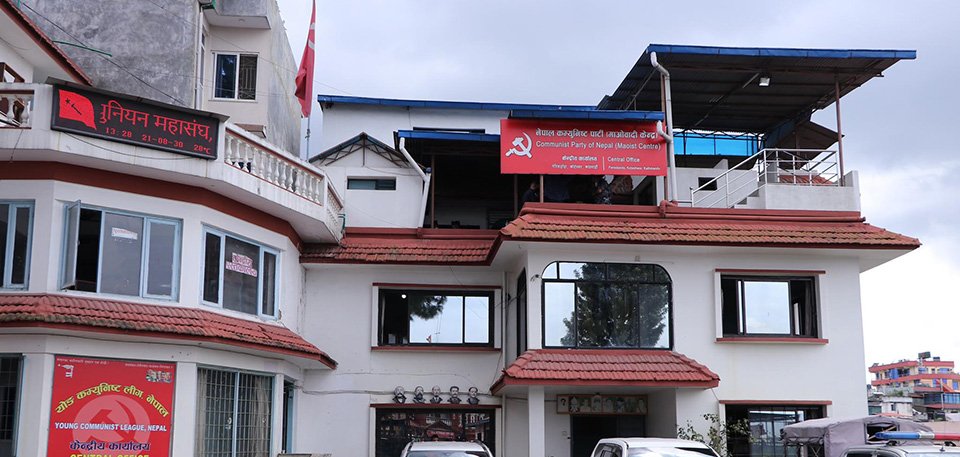

The statute of the CPN (Maoist Centre) tabled by party Chairman Pushpa Kamal Dahal ‘Prachanda’ at the party’s first Statute Conference was passed with amendment on Thursday.
The amendment statute was prepared based on the recommendations received from group-wise discussions.
On the occasion, Chairman Dahal expressed the confidence that the party would now move ahead in a new manner adding that crucial recommendations were received from the leaders to refine the statute. Chairman Prachanda added that the feedback received at the party’s Statute Conference would be instrumental in defending and developing the party.
He also shared that the CPN (Maoist Centre) would now begin the preparations for the special general convention after the completion of the Statute Conference.
On the occasion, Chairman Prachanda stated that the party would elect its committees through the direct electoral system on the basis of people’s democracy from the upcoming general convention.
He also announced that the Maoist Centre would form a 199-member central committee and 11-member central office-bearers from the upcoming general convention.
Likewise, the party’s statute would be drafted to make the province committee more effective and also the issues of federalism and proportional system would be made further effective.
Chairman Prachanda stated that the issue of party’s name and election symbol would be decided in a certain time and added that the name could be changed in case of unification of more and more communist parties but it would be kept unchanged for now.
Furthermore, the Maoist Centre Chairman shared that the party’s different fronts would be given more autonomy along with ideological training and the sister organizations would be expanded.
The participants were divided into 20 different groups in the conference, which started on Tuesday at Nepal Academy in Kamaladi, Kathmandu.
During the conference, the leaders had offered their suggestions on party leadership, formation of directly elected committee, unification with other likeminded political forces, strengthening party organization, issues of governance and others.